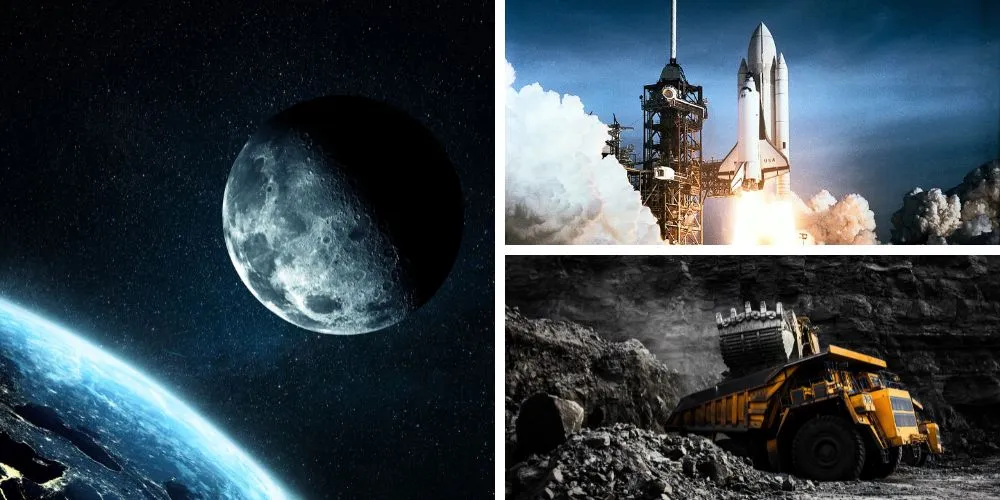In the ever-expanding vista of technological frontiers, space mining emerges as a bold venture, promising to redefine humanity’s relationship with resources. As we embark on this cosmic journey, it is essential to acknowledge the profound challenges that accompany the potential benefits of space mining. From technological intricacies to ethical considerations, the quest to extract resources from celestial bodies introduces a host of complexities that demand our careful attention.
The vast abundance of resources in asteroids and the Moon lies at the heart of the space mining revolution. According to a report by Emergen Research, the space mining market continues to grow and is projected to reach up to USD 8.19 billion by 2030 with a compound annual growth rate (CAGR) of 23.5%.
Asteroids, composed of precious metals such as platinum, gold, and rare earth elements, represent untapped reservoirs that could address resource scarcity on Earth. The potential economic challenge from these celestial bodies is staggering, with some estimates valuing a single asteroid in the trillions of dollars. This cosmic wealth, however, comes with the caveat of navigating uncharted challenges.
Technologically, space mining poses a myriad of hurdles. Developing robotic systems capable of efficiently extracting resources from asteroids and transporting them back to Earth is a complex engineering feat. The delicate movement of robots in microgravity environments, the need for autonomous systems, and the creation of innovative mining technologies suitable for extraterrestrial conditions are among the technical challenges researchers and space agencies are actively addressing.
Beyond the technological frontier, ethical considerations loom large. The question of ownership and exploitation of extraterrestrial resources raises profound ethical dilemmas. The Outer Space Treaty, established in 1967, prohibits national appropriation of celestial bodies, but it falls short in addressing the specifics of resource extraction. As private entities join the space race, an international consensus on ethical guidelines for space mining becomes imperative to prevent the unbridled exploitation of cosmic resources.
Furthermore, the environmental impact of space mining must be scrutinized. While extracting resources from space may alleviate environmental pressures on Earth, it introduces potential risks to the delicate balance of celestial bodies. For instance, removing large quantities of material from an asteroid could alter its trajectory, raising concerns about unintended consequences and the need for responsible mining practices.
An illustrative example is the Moon. Recent discoveries of water ice in permanently shadowed craters open new possibilities for sustained space exploration. However, extracting lunar resources requires careful consideration to prevent irreversible environmental damage and preserve the integrity of these extraterrestrial ecosystems.
As we venture into the cosmic frontier of space mining, the challenges it presents are as vast as the resources it promises. Realizing a sustainable and ethical space mining industry necessitates collaborative efforts among nations, regulatory bodies, and private entities. Only through a collective commitment to innovation, ethical exploration, and responsible resource management can we navigate the complexities of space mining and harness the potential of the cosmic frontier for the betterment of humanity.







